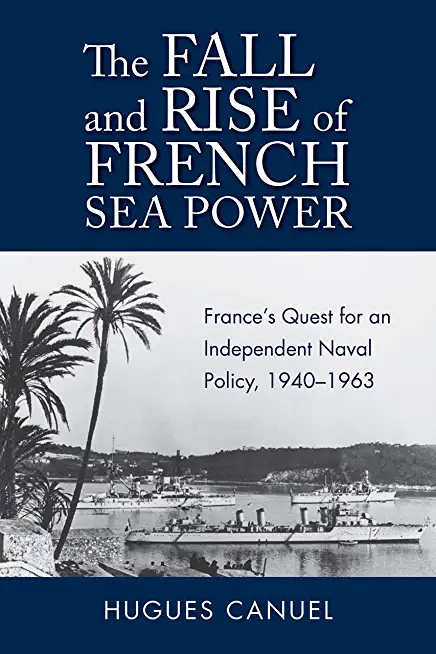
Canuel, Hugues
product information
description
4The Fall and Rise of French Sea Power explores the renewal of French naval power from the fall of France in 1940 through the first two decades of the Cold War. The Marine national continued fighting after the Armistice, a service divided against itself. The destruction of French sea power--at the hands of the Allies, the Axis, and fratricidal confrontations in the colonies--continued unabated until the scuttling of the Vichy fleet in 1942. And yet, just over twenty years after this dark day, Charles de Gaulle announced a plan to complement the country's nuclear deterrent with a force of nuclear-powered, ballistic missile-carrying submarines. Completing the rebuilding effort that followed the nadir in Toulon, this force provided the means to make the Marine national a fully-fledged blue-water navy again, ready to face the complex circumstances of the Cold War. An important continuum of cooperation and bitter tensions shaped naval relations between France and the Anglo-Americans from World War II to the Cold War. The rejuvenation of a fleet nearly wiped out during the hostilities was underpinned by a succession of forced compromises, often the least bad possible, reluctantly accepted by French politicians and admirals but effectively leveraged in their pursuit of an independent naval policy within a strategy of alliance. Hugues Canuel demonstrates that the renaissance of French sea power was shaped by a naval policy formulated within a strategy of alliance closely adapted to the needs of a continental state with worldwide interests. This work fills a distinct void in the literature concerned with the evolution of naval affairs from World War II to the 1960s. The author, drawing upon extensive research through French, British, American, and NATO archives (including those made public only recently regarding the sensitive circumstances surrounding the French nuclear deterrent) maps out for readers the unique path adopted in France to rebuild a blue-water fleet during unprecedented circumstances.
member goods
No member items were found under this heading.
listens & views

MENDELSSOHN: SYM NOS 3 & ...
by MENDELSSOHN / SOLTI / LONDON SYMPHONY ORCHESTRA
COMPACT DISCout of stock
$11.99
Return Policy
All sales are final
Shipping
No special shipping considerations available.
Shipping fees determined at checkout.






